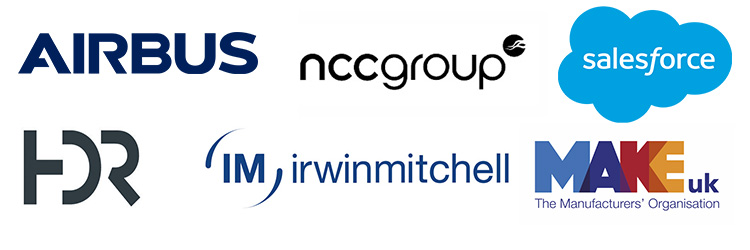This article is a summary from the Future of Manufacturing roundtable, hosted in March in collaboration with Airbus, Irwin Mitchell, HDR, Make UK, NCC Group and Salesforce.
To hit net zero targets, manufacturing companies must navigate a less confusing regulatory environment and be given government incentives for green innovation.
For the manufacturing sector, the road to net zero is paved with contradictions. The industry is full of companies displaying green ambition and innovation. Yet, a confusing tangle of legislation and guidance from the Government is preventing firms from accelerating their net zero journeys. “The regulatory regime can be difficult to navigate,” admits Claire Petricca-Riding, Partner and National Head of Planning and Manufacturing at legal and financial advice firm, Irwin Mitchell.
“It’s a complex picture that the Government needs to grapple with. On top of that, the Office for Environmental Protection has concluded that the UK is falling short of its environmental targets. Yet, the changes to the Levelling Up and Regeneration Bill — which includes various issues that impact the manufacturing sector — suggest there is too much focus on pleasing the electorate and not enough on doing what’s right for the climate and industry. We need the Government to push a progressive agenda to help us get to net zero.”
Bright opportunity to manufacture lasting change
Richard Papworth is Director of the engineering, architecture, environmental and construction services firm, HDR. From his perspective, net zero is an opportunity for manufacturers to influence change in the construction industry. “Manufacturers can drive efficiencies with offsite construction that is more sustainable and less energy-intensive,” he says.
“The challenge is that a culture change is necessary for customers to choose the offsite option. At the moment, if confronted with the choice of traditional reinforced concrete frames or frames produced offsite, they would probably pick unsustainable, reinforced concrete. That mindset has to shift. Currently, sustainable options are being driven by the industry — not by legislation.”
Manufacturers must view net zero as a
win-win, no-risk business move.
Globally, manufacturing is blamed for one-third of carbon emissions, notes Tim Rawlins, Senior Adviser to global cybersecurity and risk mitigation company, NCC Group. The sector is vast and includes everything — from cars to chemicals and wind turbines to widgets.
“At one end, there are more sustainable, technology-intensive manufacturers,” he says. “At the other, there are highly polluting mass producers. However, if the sector was segmented, efficiencies, renewables and the circular economy could be adopted quickly by firms in areas of manufacturing where it was easier to do so. A different plan could be put in place for those who would find it harder.”
Incentivising companies to create net zero innovations
Jermaine Benson, Regional Sales Director at global customer relationship management software company, Salesforce, agrees with this idea. He believes manufacturers must view net zero as a win-win, no-risk business move.
“Two things need to happen,” he says. “First, the Government must be clear about the key areas of manufacturing that it wants to target with efficiencies over the next 10 or 15 years. Those businesses will then feel secure to align their strategic priorities along that horizon. Secondly, government should actively incentivise companies to create net zero innovation.”
Larger players should also persuade the smaller companies in their supply chains to be more sustainable, says Mark Crompton, Global Head of Employer Marketing and Employer Branding at aerospace engineering corporation, Airbus. “Without them on board, we can’t reach our emissions targets,” he says. “We want to show that we’re serious about net zero. It’s why we’ve made some strong commitments to reduce our scope 1 and 2 emissions by up to 63% by 2030.”
Despite the challenges, Verity Davidge, Director of Policy at Make UK, an organisation representing and championing UK manufacturers, is optimistic. “Many manufacturers are either decarbonising their processes and production lines or preparing to,” she says. “The energy crisis has accelerated their efforts because — what manufacturer doesn’t want to be more energy-efficient? There are grants, funds, tax relief and pots of money available to help — but these need to be better signposted so that more businesses can take advantage of them.”
In collaboration with


